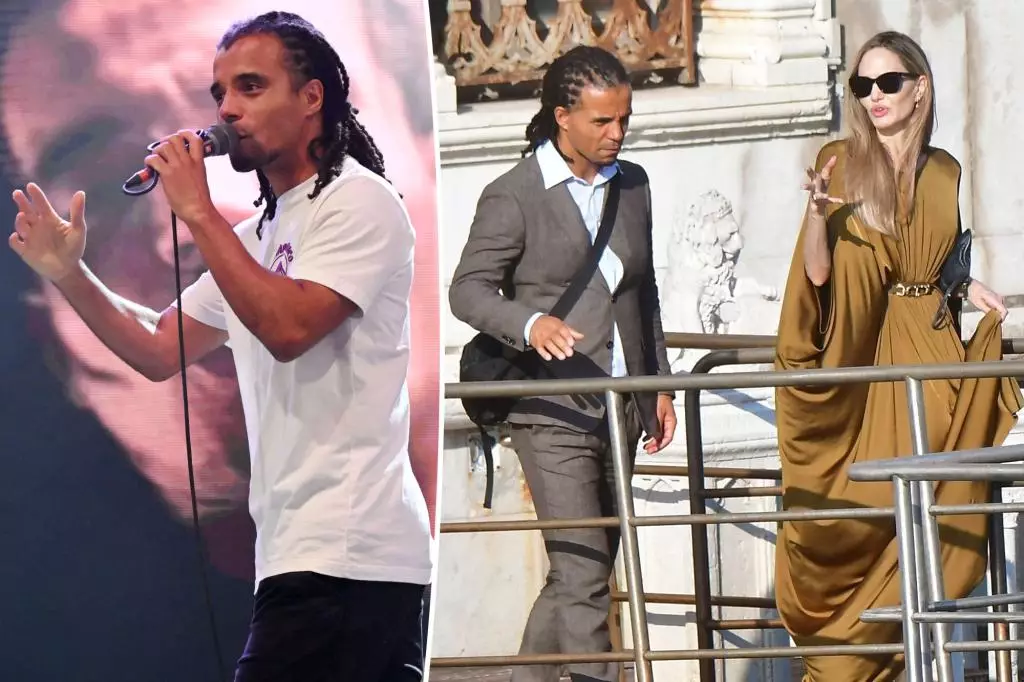The intersection of celebrity culture and social activism often produces fascinating narratives, and the recent reported closeness between Angelina Jolie and British rapper Akala is no exception. This rumored relationship has ignited discussions not only about their potential romance but also about the deeper intellectual connection they appear to share. Given the complexities of both their public personas and the implications of their interactions, it is essential to analyze what this emerging bond might signify for both of them and broader societal themes.
Angelina Jolie, known for her illustrious acting career and humanitarian efforts, has often displayed a keen interest in history, particularly regarding issues pertinent to social justice. Reports suggest that Akala has introduced her to significant aspects of Britain’s colonial history and its prominent Black figures. This common ground may serve as the foundation for their burgeoning friendship. The importance of shared intellectual pursuits in establishing chemistry between individuals cannot be overstated; in this case, such discussions may offer both Jolie and Akala a unique platform for collaboration.
The introduction of specific historical narratives, such as the stories of Kelso Cochrane and Olive Morris, indicates a respectful exchange of knowledge. It highlights how modern figures in arts and entertainment can utilize their visibility to shed light on underrepresented histories. If Jolie finds inspiration in Akala’s insights for new film projects, the direction of her future works could take a significant shift, possibly leading to an increase in awareness of Black British history within mainstream media.
Alongside their mutual interest in history, Jolie’s admiration for Akala’s activism presents a compelling narrative. Akala is not just a rapper but also a potent voice in social justice, dedicated to issues such as race equality and education. Reports suggest that their acquaintanceship arose through a charitable endeavor, reflecting that both individuals wish to make a positive impact beyond their respective artistic pursuits. This intersection is crucial; when celebrities engage in socially conscious projects, they inspire others to reconsider their roles in society.
However, there is a tension here, as some sources assert that there is no romantic connection. If the duo’s meetings revolve more around activism than romance, it may still yield a profound impact on both their careers and the causes they support. Fans and followers of both personalities may benefit from recognizing the multifaceted dimensions of allyship.
Recent rumors have also pointed to the pair using secretive methods to maintain their privacy, with sources claiming they’ve been seen together discreetly at Jolie’s London hotel. Such behavior underscores the challenges of maintaining personal relationships under the scrutiny of the public eye. The use of separate cars and hidden entrances is not just about privacy; it is indicative of the lengths to which celebrities go to protect aspects of their personal lives. This dynamic raises pertinent discussions about the broader implications of fame: how does constant public scrutiny influence personal relationships?
Jolie, a mother of six and a former partner of Brad Pitt, embodies the challenges of balancing parental responsibilities, public life, and personal intimacy. Such complexities are bound to shape her interactions with figures like Akala—both of whom must navigate their legacies while also fostering genuine human connections.
At this juncture, it remains unclear whether Jolie and Akala’s relationship will evolve into something more than friendship or if they will remain simply collaborators and friends. Regardless, their interactions open up avenues for significant discourse about the representation of history, the role of activism in art, and ultimately how such relationships challenge and redefine notions of celebrity.
The narrative surrounding Jolie and Akala is emblematic of broader trends in contemporary culture. As public figures increasingly engage in discussions around social justice and history, they invite their followers to partake in a larger dialogue about race, representation, and activism. Whether romantic or platonic, their connection could potentially lead to a more engaged and informed public. In a world that often prioritizes scandal over substance, this friendship presents an encouraging reflection of what modern celebrity can—and perhaps should—embody.

Leave a Reply